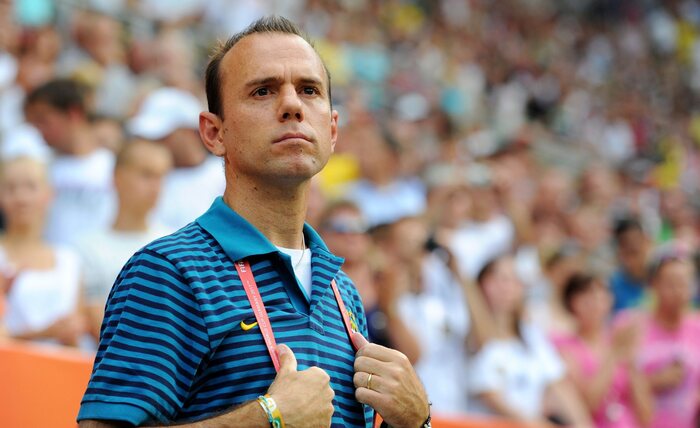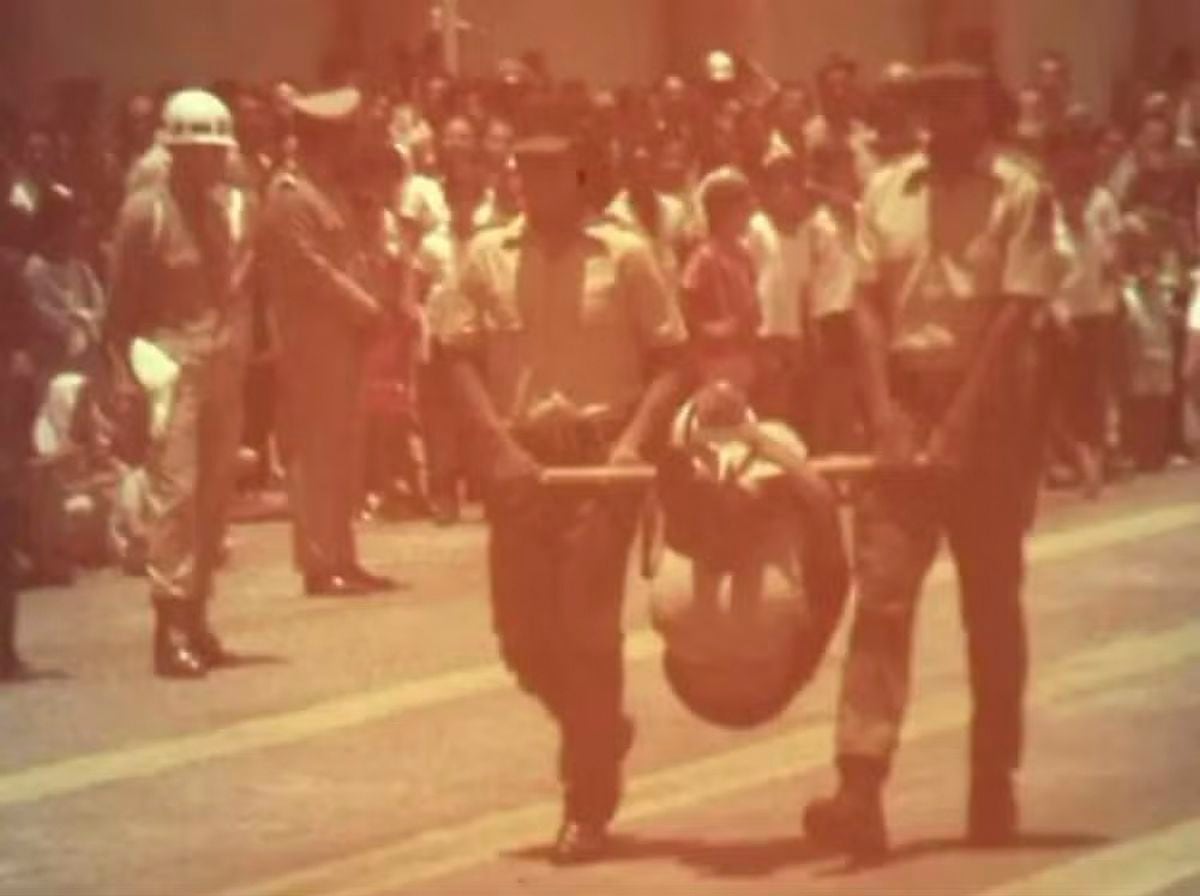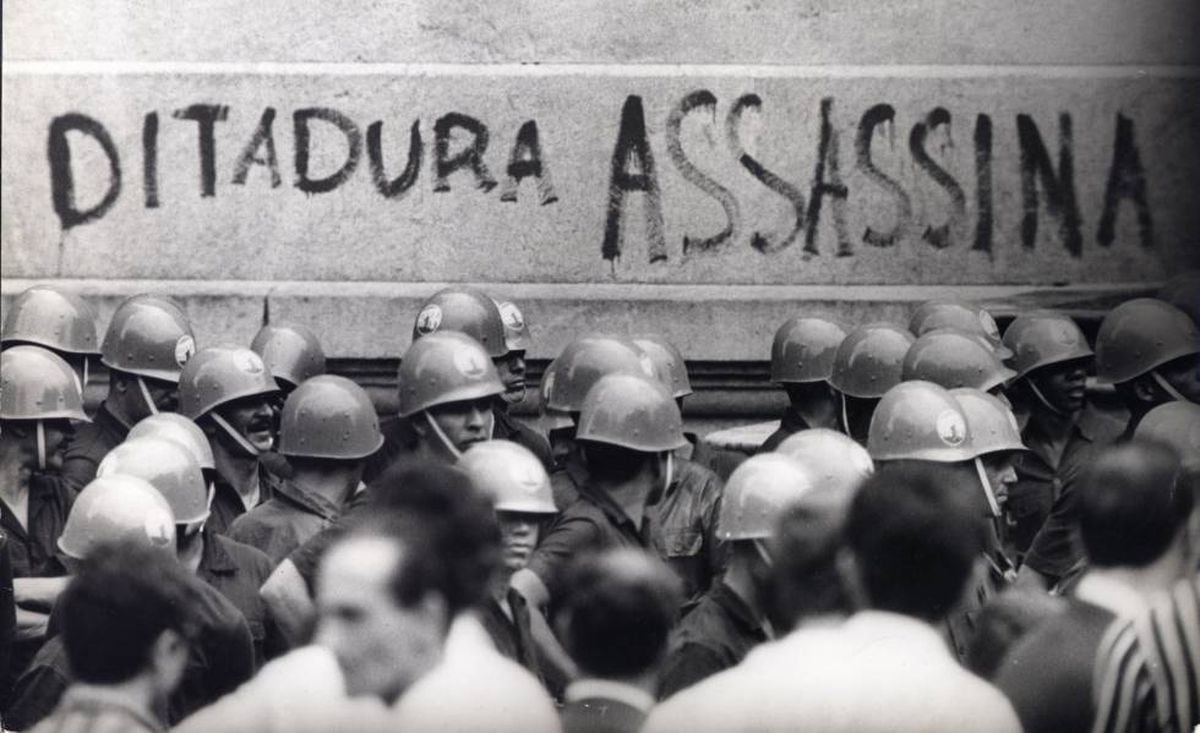British filmmakers David Tryhorn and Ben Nicholas have embarked on an ambitious mission: to tell an unpublished version of the story of the greatest footballer of all time, a world celebrity for more than 50 years and the star of countless books, films, documentaries and advertising pieces.
Now the result is released: the documentary
Pelé
(Netflix), which narrates the legendary player's sporting boom, as well as his personal and political conflicts, especially his relationship with the Brazilian dictatorship: the latter is somewhat different from previous productions.
That and that this is commented by
Rei
himself
.
The first scene is the inauguration of the 1970 World Cup in Mexico, the scene of the coronation of Pelé as three-time world champion.
It is already seen there that the sporting success of Pelé will be the common thread of the film.
But there is a layer of tension on the analysis that the ex-footballer makes about his career, now 80 years old.
Sitting in a chair that he reaches with the help of a walker (an unusual image of his current seclusion and health problems), Pelé gets emotional when he talks about his appearance in the 1958 World Cup and his farewell in Mexico.
"The great gift of victory is relief," he says, remembering the fear and anxiety he felt before the big finals.
Especially before the tournament in Mexico, loaded with symbolism and controversy.
"At that time I didn't want to be Pelé," he asserts.
The
canarinha
(Brazilian team) was in low hours in those days.
After winning two consecutive World Cups, that of Sweden in 1958 and Chile in 1962, he had skidded in England in 1966. Now, however, they were the great hope of the military government.
Six years after the coup and two after AI-5 - the measure by which Congress was closed and dissent began to be repressed - he saw in the team an opportunity to exalt nationalism and keep the population happy.
The Netflix production gets the player to talk at length about the dictatorship, torture and the use of football - and himself - as propaganda for the military regime.
“If I said I didn't know [that there was torture], I would lie.
But we weren't sure about things.
In football it was absolutely the same ”, he says.
Those seventy were the hardest years of the dictatorship, which according to the National Truth Commission has been responsible for 421 murders and disappearances of political opponents of the military that ruled the country from 1964 to 1985.
Pelé was the cause of a discussion that ended in the dismissal of coach João Saldanha - a member of the Communist Party - two months before the World Cup in Mexico.
There was obvious interference from the military in charge of the Brazilian coaching staff, who gave command of the team to the Lebanese Mario Jorge Lobo Zagallo.
The coach won every game in Mexico, with historic performances against England, Uruguay and Italy.
In the words of the journalist Zé Trajano, one of the many voices in the documentary, “I went to the World Cup wanting the team to lose due to the dictatorship.
When I arrived, it was impossible for me ”.
The 1970 Brazilian team is still considered one of the best teams in football history today.
The World Cup in Mexico marks the beginning and end of the documentary.
It is where the images of Brazil playing during the story come from.
It is the heart of the film, not only because of the greatness of Pelé's sporting achievements, but because of what he says about the star off the pitch.
After the 1958 World Cup, Pelé had been elevated to the symbol of a country that was evolving culturally, that was industrializing;
a reason to overcome the ingrained Brazilian inferiority complex.
To top it all, he was an icon of the black community.
But now, the image of this three-time champion handing over the world cup to the then dictator Emílio Garrastazu Medici only provoked criticism for the three-time champion's submission to the dictatorship.
Today, however, even his critics ponder that he would have had a difficult time standing up to the military in the lead years.
In the documentary, almost everyone avoids any kind of moral condemnation.
Former players, analysts and even former president Fernando Henrique Cardoso comment on the issue.
“The three-time championship was not Medici's victory;
it was Pelé's victory ”, summarizes the journalist Juca Kfouri.
“I have always opened the doors to the governments and they have always come to me”, justifies
O Rei.
Indeed, apart from the photos in which he goes out with the military presidents, after the redemocratization Pelé also saw all the presidents, of all ideological colors, of José Sarney (1985-1990), Fernando Collor (1990-1992) , Itamar Franco (1992-1994), Fernando Henrique Cardoso (1995-2002, of whom he was Minister of Sports), Luiz Inácio Lula da Silva (2003-2010), Dilma Rousseff (2011-2016) and Michel Temer (2016-2018 ).
This year, he sent a signed Santos shirt to Jair Bolsonaro, as he does with all the leaders of the largest Latin American country.
In that city, Santos, on the São Paulo coast that bears the same name as his historic team, Pelé spends his days. One of the scenes in the documentary shows the player at a meal with his teammates (all over 80 years old), whom he helped win two Intercontinental leagues, two Libertadores leagues and six Brazilian championships. The frugality of his current day-to-day life contrasts with other images of that Pelé with a physical power that still amazes in his country of origin - where he finds no rival - to this day.

/cloudfront-eu-central-1.images.arcpublishing.com/prisa/MPQHJBTFVBCZFA5LEGRJLV3XIE.png)







